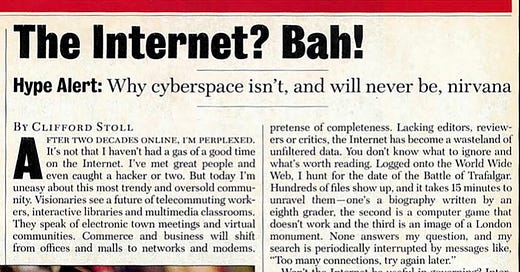The day the NBA’s season was suspended because of COVID-19, my company’s CEO sent an email saying that all employees were to work from home indefinitely. It was a really sudden transition — one moment America felt completely normal. Next thing you know, we were in the biggest global crisis since World War II.
Back then, people were still deluding themselves into thinking this pandemic thing was going to blow over in a month or two. My boss called me the next day to let me know that belief was bullshit, and that COVID wasn’t going away anytime soon. She also told me that by the time all of this was over, we would be living in a different world. At the time, I had no idea what she was talking about.
Now it’s been more than a year, and the end of the pandemic is in sight. More than 30% of Americans are fully vaccinated against COVID-19. Soon enough, we’ll be having concerts and festivals again.
It’s easy to picture the world going back to normal, just the way we remembered it before the lockdowns started. Still, the more I think about it, the more I realize that my boss was right. As Peter Thiel said, 2021 might go down in history as the first year of the 21st century.
We’re not going back to 2019
Studies show that when human beings try to imagine the future, we’re often biased to imagine it being very similar to the past. So it makes sense that when we imagine what the world will look like after the pandemic’s over, we often imagine it as the way things were in 2019, except with a little bit more work-from-home.
Of course, work-from-home policies can have a bigger impact on our world than we might realize. But before we go into that, we should talk about why it took so long for remote work to be commonplace.
Why were we still in the past for the last 20 years?
Back in the 90s, the Internet was mostly used by normal people only for email. Still, there were true believers that thought that the Internet could one day change the way people worked. At the time, they were mostly mocked. Here’s an article from Newsweek back in 1995.
As you can see, the writer mentioned how believers in the Internet talked about how “commerce and business will shift… to networks and modems”. However, broadband speeds at the time were so incredibly slow that the idea seemed ridiculous to the writer.
Broadband speeds got faster and faster every year and the smartphone made the Internet a constant presence in people’s lives. Of course, it didn’t happen right away. The original iPhone was released in 2007 but it dropped calls all the time, usually didn’t have reliable access to the Internet, and the original camera was so bad that it required Instagram filters to be invented just for pictures to be passable.
Eventually, the technology got better. Over time, smartphones got better chips, better cameras, and better access to the Internet. As a result, the average person started spending significantly more time on the Internet.
The Internet wasn’t just for nerds anymore — it was something that literally everyone used constantly. That means if employees needed to get on the Internet for work, there was no learning curve they had to go through. At the same time, companies like Zoom and Slack built the tools that were needed to make work from home a viable option.
Of course, even when Internet infrastructure was fully developed, the vast majority of companies still required their employees to go into the office. After all, that’s the way human beings worked since basically the dawn of time. A CEO would have to be incredibly open-minded to let a large portion of the workforce not be in the office.
Then, COVID-19 came around and changed everything. Almost every business in the country was forced to accept work-from-home, and many of them found that everything worked out just fine. Now, businesses have to ask themselves whether paying rent for an office is actually worth it. After all, a study by McKinsey found that 20% of American workers could work just as efficiently if they were working remotely 3-5 days in a workweek.
The restructuring of American society
Improvements in technology and the COVID-19 lockdowns have made the dreams of Internet nerds in the 90s finally come true. We’re at a place where the Internet can enable people to work the way they want to. The promise of the 21st century has finally arrived. That means we might start seeing digital driving new settlement patterns all across the country.
In the mid-20th century, air conditioning led to one of the biggest mass migrations in American history. As Steven Johnson wrote in the book How We Got to Now, AC got Americans to start moving to cities like Phoenix, which saw a 300% increase in population in just 10 years. The rise of work-from-home policies is already having similar effects.
Since the beginning of the pandemic, we’ve seen huge increases in home prices in places like Lake Tahoe, where many rich tech workers from Silicon Valley have decided to settle. In the past year, home prices in the area have gone up by 54%.
Lake Tahoe has always been a really nice place to live. It’s a great ski destination and has tons of hikes to explore during the summer. Still, the city’s population growth never took off because the area never really had any sort of industry other than tourism. While wealthy tech CEOs may have had 2nd homes in Tahoe, they needed to show up back in their office once their vacation was over.
Now, the fact that there aren’t tech companies headquartered in Lake Tahoe doesn’t matter as much. If a tech worker has the option to work remotely, they can stay in the city as long as they want and spend their weekends skiing.
Not every company is going to embrace work from home…
Let’s be real: working in the office isn’t going to disappear completely. While companies like Slack and Twitter have given employees the option to work from home permanently, Facebook and Google are requiring that employees go back to work.
Still, even having a portion of companies supporting remote work can have big consequences. As Peter Thiel pointed out in that video I linked to earlier, if just one partner in a married couple has the option to work from home, the whole family has more flexibility. Some couples were discouraged from moving because it’s really hard for two people to find new jobs in a new city. The whole process becomes a lot simpler when only one partner is working from home and only one person needs to find a new job.
We still have work to do…
While Internet infrastructure is significantly better than it was back in 1999, there’s still more work that needs to be done. It’s been estimated that 65% of Americans don’t have access to reliable Internet that can support video conferencing. Of course, help is on the way. Companies like SpaceX have already started to sell dishes that give access to high-speed satellite Internet even in rural areas.
Where might the future take us?
If the work-from-home really does change the way we live, it’s going to have consequences beyond people choosing to live in new cities. Here are three trends that we might start seeing after we’ve reached herd immunity through vaccination.
A new type of office
I always liked working in an office more than I did working from home. After all, I like being around other people and having the opportunity to socialize during breaks. But maybe I need to rethink my idea of what work can be. Maybe instead of just working with people from my office, I can be in a city hundreds of miles away from my company’s headquarters, working in an office with people from hundreds of other companies.
This sort of arrangement might be commonplace in the near future. WeWork offers monthly subscriptions that give workers access to hundreds of office locations around the world. It’s a great way for remote workers to get the benefits of the office while also having the option to travel without having to take days off and meet interesting people from multiple different industries.
Increased wealth inequality
In the past 10 years, we’ve heard a lot about income inequality. It was one of the biggest themes behind Occupy Wall Street and Bernie Sanders’s presidential run.
In the past year, the discussion around inequality has only intensified. During the COVID-19 pandemic, we saw what some economists called a “K-shaped recovery”. People who had white-collar jobs in industries like tech, finance, and real estate generally did well, while blue-collar workers in industries like restaurants and hospitality saw unreal levels of unemployment.
Even after the pandemic is over, it’s likely that work-from-home policies will only increase inequality. Most blue-collar jobs cannot be done remotely. Plus, when wealthy tech workers move to cities like Lake Tahoe, workers in the tourism industry may end up getting priced out of the neighborhood.
Big Tech’s domination
The conversation around the power of big tech companies like Facebook, Amazon, Apple, and Google has already started. Last year, the CEOs of all 4 of those companies got dragged in front of Congress and grilled on whether their companies were monopolies.
This issue isn’t going away anytime soon. As our lives become reliant on digital, the power of Big Tech is only going to grow greater and greater. That means we need to ask ourselves if we want to have these companies to have so much power and influence over our lives. In the next few years, there’s going to be more discussion of possible antitrust action against these companies. We’ll also probably see more exploration of alternative platforms based on decentralized blockchain networks that won’t be controlled by a few dudes in Silicon Valley.
In conclusion
I really can’t wait for the day when Dr. Fauci gets on TV and tells everyone that there’s no need for anyone to wear masks anymore and we can all start going back to concerts. I’m sure it’s going to be a great time. Still, I don’t know how I’ll be doing my job when it’s time for me to go back to work.
Anyway, if you liked this article on the future of work, you should subscribe to our weekly newsletter. We send one article on business & tech every Sunday.












Share this post